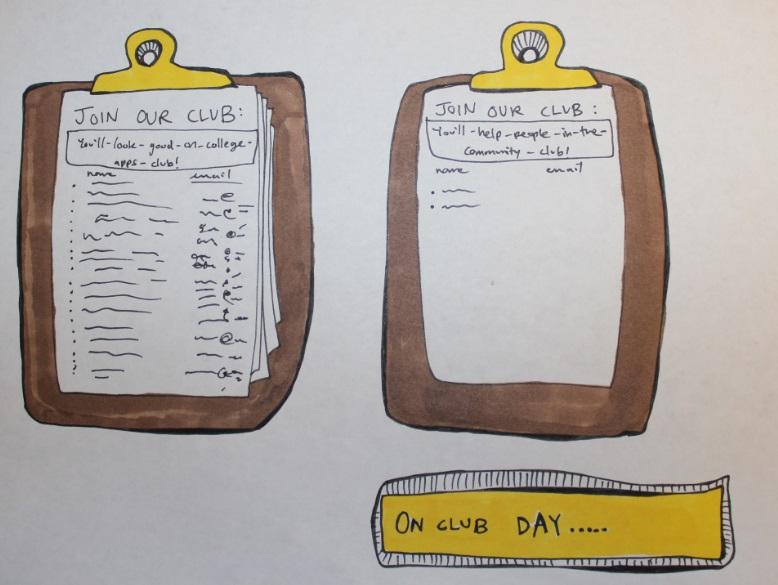Clubs not always started for wrong reason
November 20, 2014
Seventy-five SSL hours is a burdensome requirement for many MCPS students, but an easy enough feat to accomplish. Although nowhere in the graduation requirements does it call for a student to start his own club, volunteer regularly at a retirement home and protest for equal pay, more and more CHS students feel that what is required is barely a suggestion; a successful student must go far above and beyond in order to even stand a chance in college admissions.
According to a 2011 U.S. News and World Report article, a student’s community service is ranked fourth in importance on some college applications, above reference letters, interviews and even legacy.
While this is mainly a mere testimony to the obvious increase in the competitiveness of college admissions, it directly affects every aspect of students’ lives. Especially in schools as college-competitive as CHS, a student’s every action is attributed to building a college résumé. This assumption, though correct some of the time, tarnishes the noble intentions of the impassioned students who truly want to make a difference.
CHS offers roughly 120 clubs, almost 50 of which are dedicated to community service, whether it be tutoring students or helping local homeless shelters. Many of these “charity clubs” only host one or two fundraising or community service events a year.
This is unacceptable. Regardless of why a student starts a club, he or she must at least follow through with the club’s mission. It is one thing to start a club for résumé boosting, but it is another issue to deliver less than what was promised.
According to Principal Joan Benz, colleges can usually figure out if a club is not taken seriously on a college application.
However, students who slack are always able to find a way to promote their club or charity work in a way that makes it sound better than it actually is. Those who embellish their service not only cheat the system, but also take away from students who were completely truthful in their service.
The clubs that slack off in actually following their mission give a bad rep to clubs at CHS that are trying to make an actual difference.
According to Benz, clubs such as the Key Club, which is part of a national organization, host fundraisers and races throughout the year in order to meet the national initiative.
All national clubs should require as much from each individual branch. To prevent students from relying on the national organization to promote themselves, each branch should have specific guidelines in order to gain the privilege of using the club’s name, rather than the loose suggestions that many clubs have now.
Though CHS has sponsorship and application requirements for clubs, it is not enough to prevent ineffectiveness. CHS should separate interest clubs from service clubs and require the service clubs to file additional reports that detail what they are doing to help the community throughout the year. Clubs that do not meet the requirements should not be labeled as such.
Granted, students have a lot on their plates in high school and these rigorous requirements would only add to a student’s stress. However, if charity work falls as the fourth most important aspect to a student’s application, it must be taken very seriously. Students who are solely focused on getting into college can do away with activities that are less important for college admissions, thus eliminating stress.
The clubs and students at CHS who do make a difference face criticism for their motives. It isn’t normally misguided to assume that a student is thinking about college at least somewhat when starting a club or volunteering in the community. However, there is no way around the inevitable “résumé building,” so if a student is making a positive impact, that should be enough.
Though there are students at CHS who do charity work for noble reasons, it is impossible to eliminate the skepticism when it comes to service. People want to assume that a student has exactly one thing in mind when performing acts of kindness: college.
It’s time to loosen the strings that wind us so tight, CHS. Yes, there are the obvious cheaters who attempt to promote themselves as community-serving saints. However, there are also students who actually want to better our community. Stop questioning their motives and accept the fact that regardless of why a student is doing what he or she is, the community is improving as a result of his or her actions.


